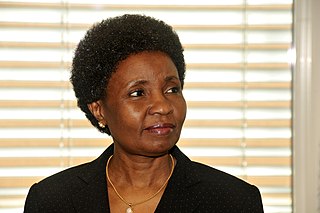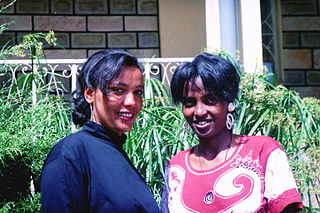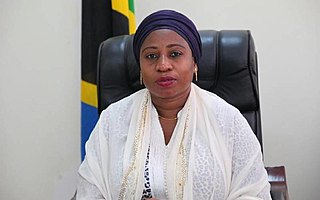Related Research Articles

Female genital mutilation (FGM),also known as female genital cutting,female genital mutilation/cutting (FGM/C) and female circumcision,is the ritual cutting or removal of some or all of the external female genitalia. The practice is found in some countries of Africa,Asia and the Middle East,and within their respective diasporas. UNICEF estimated in 2016 that 200 million women in 30 countries—Indonesia,Iraq,Yemen,and 27 African countries including Egypt—had been subjected to one or more types of female genital mutilation.

Genital modifications are forms of body modifications applied to the human sexual organs,such as piercings,circumcision,or labiaplasty.

Emma Bonino is an Italian politician. A senator for Rome,she served as Minister of Foreign Affairs from 2013 to 2014. Previously,she was a Member of the European Parliament and a member of the Chamber of Deputies. She served in the government of Italy as minister of international trade from 2006 to 2008.

Asha-Rose Mtengeti Migiro is a Tanzanian politician and diplomat who was the Deputy Secretary-General of the United Nations from 2007 to 2012. She was appointed as the United Nations Secretary-General's Special Envoy for HIV/AIDS in Africa on 13 July 2012.
Kurdish women have traditionally played important roles in Kurdish society and politics. In general,Kurdish women's rights and equality have improved dramatically in the 21st century due to progressive movements within Kurdish society. However,despite the progress,Kurdish and international women's rights organizations still report problems related to gender inequality,forced marriages,honor killings,and in Iraqi Kurdistan,female genital mutilation (FGM).

Anna Kajumulo Tibaijuka is a Tanzanian politician and United Nations official. She was a Chama Cha Mapinduzi (CCM) Member of the National Assembly for Muleba South constituency during 2010 to 2020 and served as the Minister of Lands,Housing and Human Settlement Developments from 2010 to 2014.
International Day of Zero Tolerance for Female Genital Mutilation is a United Nations-sponsored annual awareness day that takes place on February 6 as part of the UN's efforts to eradicate female genital mutilation. It was first introduced in 2003.

There have been several studies concerning women in Ethiopia. Historically,elite women in Ethiopia have been visible as administrators and warriors. This never translated into any benefit to improve the rights of women,but it had meant that women could inherit and own property and act as advisors on important communal matters. As late as the first part of the 20th century,Queen Menen,consort of Emperor Iyasu IV,had a decisive role in running the Ethiopian Empire. Workit and Mestayit regents to their minor sons have been held responsible for their provinces. They owed their rights to landed property because of a special type of land tenure that expected tenants to serve as militia to overlords,irrespective of gender. In 1896,Empress Tayetu Betul,wife of Emperor Menelik II,actively advised the government and participated in defending the country from Italian invasion. Prominent and other landowning women fought against the second invasion in 1935–41. With the assistance of European advisors,women in the ensuing period were kept out of the army and politics,even as advisors. Instead,they were restricted to family and household work of raising children and cooking. With a steady increase in female representation in education,they have started to undertake nursing,teaching,and other similarly supportive roles. Over the 2018–2019 period,their gradual participation in state politics has been increasing at a steady pace.
The role of women in Egypt has changed throughout history,from ancient to modern times. From the earliest preserved archaeological records,Egyptian women were considered equal to men in Egyptian society,regardless of marital status.

Women in Chad,a landlocked country in Central Africa,are the mainstay of its predominantly rural-based economy and they outnumber the men. Chad is a country with diverse and rich cultural practices,such as male beauty pageants and long-kept-secret hair products. Despite their numbers in the general population,there are very few women in governmental positions and gender equality is far from being a reality in Chad. Chad is rated as the third worst country in Africa for gender equality by the World Bank. Additionally,there are few women who reach higher education,and many who receive a college degree do so outside of the country.

Angellah Jasmine Mbelwa Kairuki is a Tanzanian CCM politician and cabinet Minister. On October 2,2022 she has been appointed as a Minister in Presidents Offfice Region Administration and Local Government (PoRALG).

Ummy Ally Mwalimu is a Tanzanian politician belonging to the ruling Chama Cha Mapinduzi (CCM) party. She is currently a Member of Parliament for Tanga Constituency and also serves as the Minister of Health,Seniors and Children. She has held various cabinet positions since 2010. She is a third-term Member of Parliament,firstly appointed to a seat reserved for women in the parliament of Tanzania in 2010.

Sierra Leone,officially the Republic of Sierra Leone,is a Constitutional Republic in West Africa. Since it was founded in 1792,the women in Sierra Leone have been a major influence in the political and economic development of the nation.

The Kikwete Cabinet was formed by President Jakaya Kikwete after taking the oath of office on 21 December 2005. Kikwete had won a landslide victory in the 2005 presidential election receiving 80.2 percent of the popular vote. His inaugural cabinet had seven women ministers,the highest in the nation's history.
Jenista Joakim Mhagama is a Tanzanian politician belonging to the Chama Cha Mapinduzi party. She is a Member of Parliament for Peramiho constituency. In December 2015,she was appointed as a Minister of State in the Prime Minister's Office responsible for Policy,Parliamentary Affairs,Labour,Employment,Youth and the Disabled in President John Magufuli's administration. In January 2022,she was moved to the President’s Office Good Governance and Public Services.

Anne Kilango Malecela is a Tanzanian politician belonging to the ruling Chama Cha Mapinduzi (CCM) party. She was Member of Parliament for Same East constituency between 2005 and 2015,Deputy Education Minister,and Regional Commissioner for Shinyanga Region for one month in 2016.
Female genital mutilation (FGM),also known as Female circumcision or Female Genital Cutting (FGC) in Nigeria accounts for the most female genital cutting/mutilation (FGM/C) cases worldwide. The practice is customarily a family tradition that the young female of the age 0-15 would experience. It is a procedure that involves partial or completely removing the external females genitalia or other injury to the female genital organs whenever for non-medical reasons.

Anna Aloys Henga is a Tanzanian lawyer and human rights activist who is known for her social services including women empowerment initiatives such as coordinating anti-female genital mutilation in Tanzania. She became the executive director of Legal and Human Rights Center in 2018.
Rugiatu Turay is a Sierra Leonean women's rights activist. who is a staunch campaigner against female genital mutilation. She is the founder of The Amazonian Initiative Movement,a nonprofit organization with the main objective of eliminating the cultural practice of female genital mutilation in West Africa.
Jane Frances Kuka is a Ugandan educator,anti-Female Genital Mutilation (FGM) activist,politician and former Member of Parliament for Kapchorwa in Uganda's sixth parliament and was replaced by Gertrude Kulany. She was the Minister of State for Gender and Development from 1996 to 1998,a State Minister for Disaster Preparedness in 1999 and later appointed Resident District Commissioner for Kapchorwa District in 2007 replacing Tezira Jamwa.
References
- 1 2 3 Lema, Na Erick (26 October 2007). "Vilio tupu, mapokezi ya mwili wa Mbatia" [Empty cries, reception of Mbatia's body]. IPP Media. Archived from the original on 28 October 2007. Retrieved 15 February 2022.
- ↑ "Tanzania: MP Claims Nurses Performing Female Genital Mutilation". allAfrica. 7 August 2001. Retrieved 15 February 2022.
- ↑ "Global Summit of Women 2001". Globe Women. 2008. Retrieved 15 February 2022.
- ↑ "Kikwete in landslide election victory after eventful campaigns". The Citizen. 22 June 2020. Retrieved 15 February 2022.